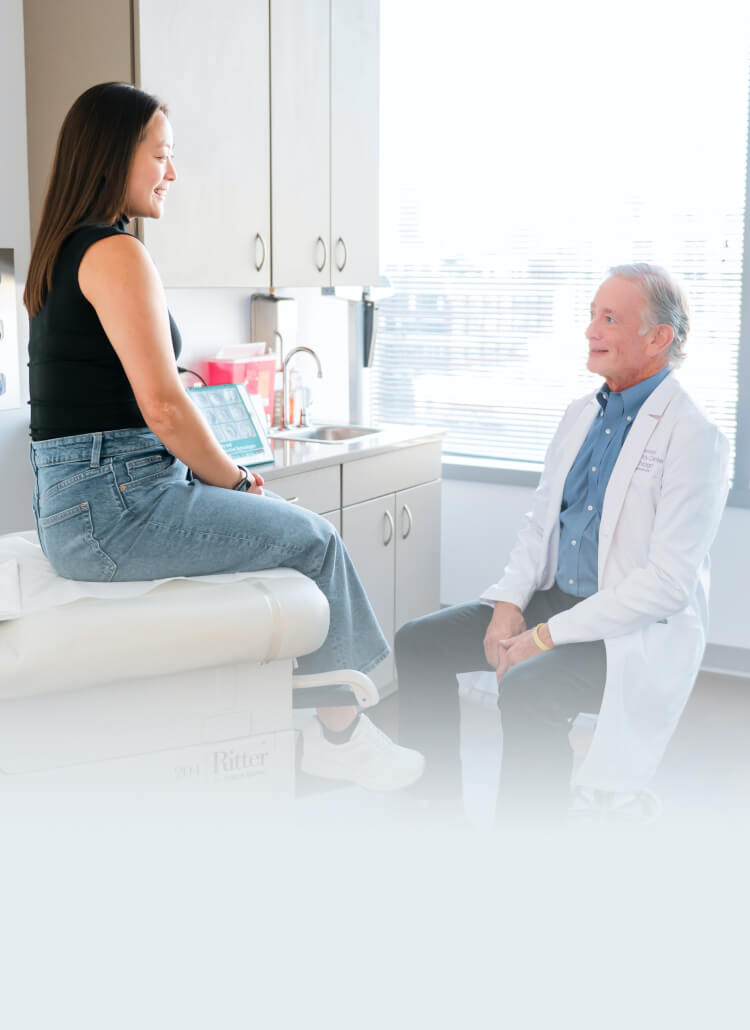What is IVF?
IVF stands for in vitro fertilization. In the simplest terms, IVF involves retrieving mature eggs and fertilizing them with sperm in a laboratory to create embryos, then transferring an embryo into the recipient’s uterus.
Depending on your individual circumstances, you may undergo IVF with your own eggs and your partner’s sperm, or with donor eggs, sperm, or embryos. You may also consider using a gestational carrier (surrogate), who will carry the pregnancy if you are unable to do so.



